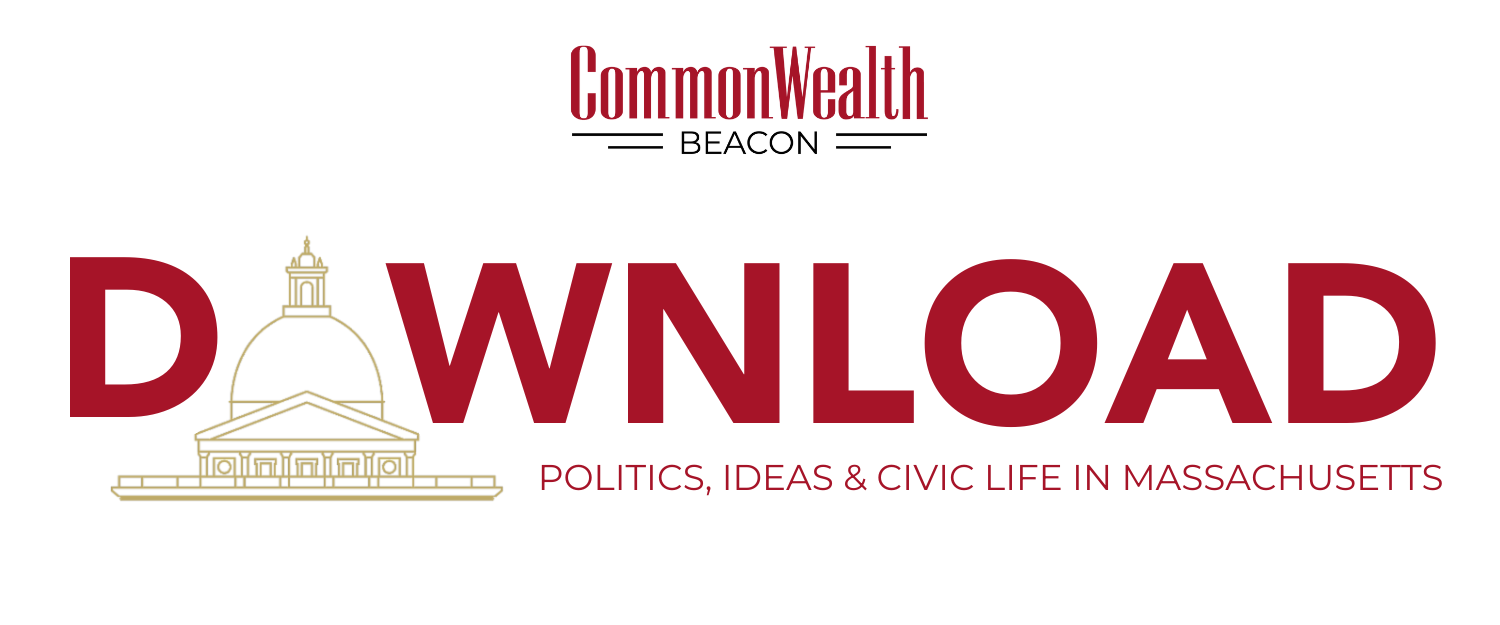The state of Massachusetts is in the artificial intelligence business, starting with $100 million set aside in a 2024 economic development bill to create and fund the Massachusetts Artificial Intelligence Hub. It’s an effort to supercharge the Bay State’s role in the AI race, which has seen billions of investor dollars steered toward California-based companies.
Massachusetts is no new entry to artificial intelligence, though, AI Hub director Sabrina Mansur told Jennifer Smith on The Codcast.
The amount of money spent on artificial intelligence research as compared to the size of the state is quite high, Mansur said, and many of the area’s premier research institutions have been plugging away on artificial intelligence-related projects for decades. Boosting that work, state officials say, is another move in the Massachusetts competitiveness play.
“Massachusetts is wanting to do this thoughtfully,” Mansur said, referencing the state’s strategic task force that met for a year to make recommendations on keeping the state a leader in the AI sector and “make sure that folks are prepared for this very, very rapid adoption of this technology.”
Artificial intelligence, which Mansur generally defines as “systems that perform tasks that typically require human intelligence,” is experiencing what for some looks like a promising boom and to others the start of a tech bubble. Generative AI – which uses large sets of training data to produce images, text, and video based on user prompts – is proliferating across mainstream technology, social media networks, and is increasingly being incorporated into workplaces.
The promise, to those like Mansur encouraging AI adoption, is new ways to recognize voices, analyze data, pinpoint patterns, and aid an array of areas of human life. She uses ChatGPT, the dominant generative AI tool, to craft bedtime stories for her children and help her plan her workflows, for instance.
Mansur’s background includes work for Draper Labs in Cambridge and the driverless car technology company Motional. She describes the AI Hub as a convener, involving about 200 people so far, between the state and educational institutions and companies working to develop and incorporate artificial intelligence.
Students with Northeastern University’s Innovate MA co-op program, for instance, worked on AI-based projects, including MBTA and MassHealth customer service improvements, improving state grant access, working with Massachusetts Department of Transportation highway design engineers, and creating a “generative AI sandbox” for state employees to experiment with AI tools. A teacher training pilot aimed at bringing artificial intelligence into classrooms launched in late June.
Skeptics of rapid adoption point to a host of objections. They include the significant energy and environmental cost of training and running these models, the common inaccuracies within the tools, massive copyright infringement claims, workforce implications if managers decide to lay off employees believing AI can do their jobs better and cheaper, and the overarching concern that these tools are getting people out of practice with critical thinking skills – or worse, not developing them in the first place.
“AI is a technology that could become a force for good or a force for ill,” Mansur said. “That depends on our actions as people and how we’re using it. So the AI Hub is focused on applying the AI, it’s focused on helping people adopt AI into the work they’re doing, and upscaling themselves in the work they’re doing with AI. We really are focused on the good, and the adoption of the good, and making it useful and productive.”
On the episode, Mansur discusses the structure and purpose of the AI Hub (1:50), its ethical frameworks (13:15), and the energy needs of artificial intelligence tools (23:30).
This <a target=”_blank” href=”https://commonwealthbeacon.org/newsletter/mass-leans-into-artificial-intelligence/”>article</a> first appeared on <a target=”_blank” href=”https://commonwealthbeacon.org”>CommonWealth Beacon</a> and is republished here under a <a target=”_blank” href=”https://creativecommons.org/licenses/by-nd/4.0/”>Creative Commons Attribution-NoDerivatives 4.0 International License</a>.<img src=”https://i0.wp.com/commonwealthbeacon.org/wp-content/uploads/2023/08/cropped-Icon_Red-1.png?resize=150%2C150&quality=80&ssl=1″ style=”width:1em;height:1em;margin-left:10px;”><img id=”republication-tracker-tool-source” src=”https://commonwealthbeacon.org/?republication-pixel=true&post=298196&ga4=G-1X7ZBDTLR0″ style=”width:1px;height:1px;”><script> PARSELY = { autotrack: false, onload: function() { PARSELY.beacon.trackPageView({ url: “https://commonwealthbeacon.org/newsletter/mass-leans-into-artificial-intelligence/”, urlref: window.location.href }); } } </script> <script id=”parsely-cfg” src=”//cdn.parsely.com/keys/commonwealthbeacon.org/p.js”></script>
